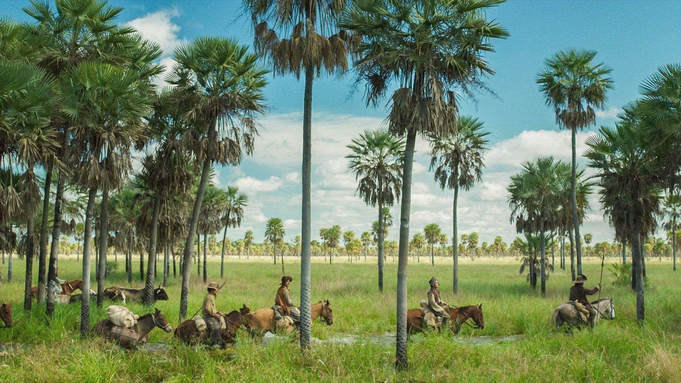ZAMA
***
Director: Lucrecia Martel
Screenwriter: Lucrecia Martel, based on the novel by Antonio di Benedetto
Principal cast:
Daniel Giménez Cacho
Matheus Nachtergaele
Juan Minujín
Lola Dueñas
Rafael Spregelburd
Country: Argentina, Brazil, Spain, France, The Netherlands, Mexico, Portugal, USA
Classification: M
Runtime: 115 mins.
Australian release date: 27 September 2018
Previewed at: Golden Age Cinema, Sydney, on 21 September 2018.
Don’t be fooled by the many diverse countries behind the finance and production of Zama, because at its heart it is a distinctly Argentinian film, based as it is on a 1956 classic of Argentinian literature and coming from an acclaimed Argentinian director, Lucrecia Martel. It was also Argentina’s submission for Best Foreign Language Film at the Oscars, although it failed to make the final selection. It’s also a particularly Argentinian story dealing with colonialism and its effects on both the colonised and the colonisers.
It’s the last decade of the 18th century and Don Diego de Zama (Daniel Giménez Cacho) has been posted to a far-flung outpost of the Spanish empire in Paraguay, where seemingly he’s been forgotten by his master, the King. Separated from his wife and children, he repeatedly requests a transfer from the various governors of the colony as they come and go but is invariably fobbed off. To curry favour with his superiors, he is constantly at their disposal but nothing he does earns the promised letter to the King that will get him back to his loved ones. As the years pass, he becomes increasingly disillusioned and the locals treat him with more and more disdain. Even the noblewoman, Luciana (Lola Dueñas) he has set his sights on is contemptuous of him. Finally, depressed and in desperation, he volunteers to join a group of soldiers heading into the jungle to try and capture or kill the fabled bandit Vicuña Porto, who just may, in fact, be the Spanish soldier Gaspar Toledo (Matheus Nachtergaele). In Zama’s deluded and increasingly bewildered state, fact and fiction begin to blur and overlap.
Di Benedetto was famously inspired by Fyodor Dostoevsky and you can certainly see the Russian author’s influence in the depression that settles on Don Diego. In the main, he’s a harmless man who’s motivated by the desire to return to his home but he’s driven to despair and the brink of madness by seeing many worse officials move on from his backwater home, while his living conditions go from bad to worse. Because he’s constantly scheming to be elsewhere, he fails to make the best of what he’s got or, as writer/director Martel puts it, “Zama plunges deep into the time of mortal men, in this short existence that has been allowed to us, across which we slide anxious to love, trampling exactly that which could be loved, postponing the meaning of life as if the day that matters the most is the one that isn’t here yet, rather than today.”
This is a strange, quirky film that has been admired by many international critics and puzzled a good few, too, and Rui Poças’ static camerawork adds to the sense of ennui. The critic for Argentinian newspaper La Nación nailed it best when she wrote that Zama is a "work of art that requires an attentive, patient and open viewer."
